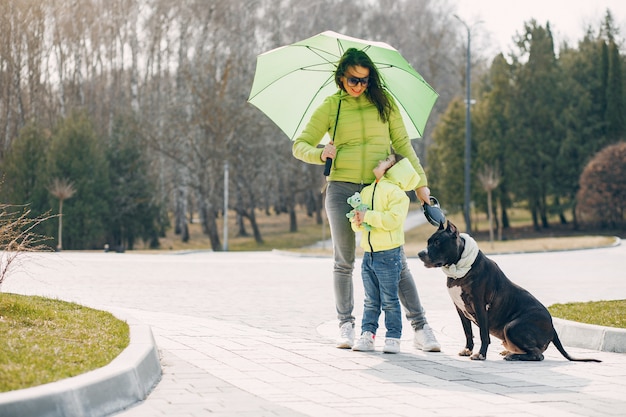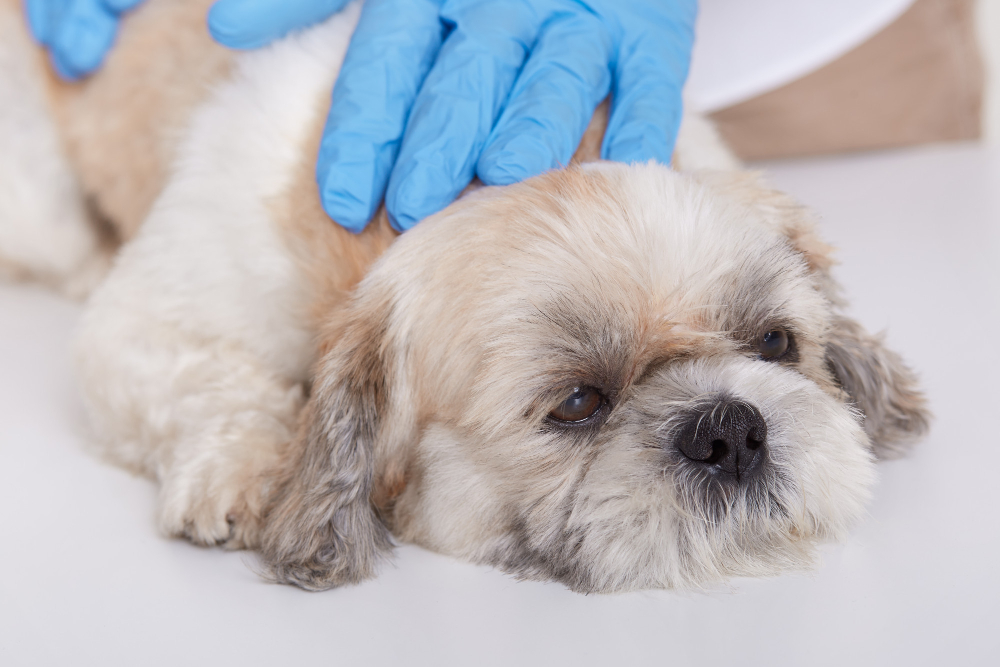Rainy Season Pet Care: Tips for Winter Garden Families


Rainy Season Pet Care: Tips for Winter Garden Families
Florida’s rainy season, especially during August, can turn your daily pet routine upside down. If you live in Winter Garden or the surrounding communities, you know the weather can bring muddy paws, damp fur, and unexpected health challenges for both dogs and cats. At Hamlin Animal Hospital, our veterinary team understands how the soggy months can affect your pet’s comfort, skin health, and stress levels. That’s why we’re sharing practical advice to help you manage everything from muddy floors to potential skin infections, keeping your pet healthy and happy despite the wet weather.
In this guide, you’ll discover how rainy, humid conditions impact pets in Winter Garden, how to spot early signs of health issues, and what proactive steps you can take to keep your furry friend protected. We’ll also explain when it’s time to schedule an appointment with a vet near me and how our team can help with rainy season pet care in Winter Garden. For those seeking additional guidance, learn more about preventive care with a wellness examination at our state-of-the-art facility located at 14410 Shoreside Way, Winter Garden, FL 34787.
Recognizing Rainy Season Pet Problems in Winter Garden
Being aware of the challenges your pet might face during the rainy season is the first step toward effective pet care in Winter Garden. Pets experience the effects of Florida’s wet weather in unique ways—dogs might track in mud after a walk, while cats may be reluctant to step outside at all.
Key signs that your pet is struggling with the weather include persistently muddy or damp paws, which can result in irritated skin between the toes. Some pets develop hotspots, which appear as red, moist, or oozing patches on the skin. Other symptoms to watch for are increased scratching, licking, or chewing at their feet, belly, or ears. For indoor pets, cabin fever can look like restlessness, uncharacteristic barking or meowing, and destructive behaviors such as chewing or clawing at furniture. Additionally, changes in your pet’s mood, such as anxiety when thunder rolls in or when routines are disrupted, are common during the rainy months.
If you notice a distinct odor coming from your pet’s skin or ears, this can sometimes indicate a brewing infection, and seeking veterinary care becomes even more important. Pets that suddenly refuse to go outside for bathroom breaks or walks may be reacting to slick, uncomfortable surfaces or have developed an aversion due to previous slips and falls.
Why Rainy Weather Affects Pets in Central Florida
The humid, rainy climate of Winter Garden creates the perfect environment for certain skin and ear problems in pets. Dogs and cats are more likely to develop conditions such as hot spots, yeast infections, and bacterial skin infections when moisture becomes trapped in their fur. For dogs that love to romp in puddles or splash through wet grass, their coats can stay damp for hours, giving microorganisms an opportunity to multiply.
Allergies are another concern during the rainy season. Mold levels tend to spike, and pollen can cling to wet fur, leading to flare-ups in pets sensitive to environmental triggers. Common symptoms of allergies in pets can include excessive licking, red skin, or even hair loss, and the wet ground makes it harder for pets to avoid irritants. If your pet has a history of allergy symptoms, you may want to consider allergy testing to pinpoint the root cause.
In addition to skin issues, rainy weather can lead to more indoor time, which sometimes means less exercise and enrichment. Pets may gain weight, become bored, or develop anxiety if they cannot burn off their usual energy. This can sometimes result in unwanted behaviors, such as scratching at doors or over-grooming.
Managing and Treating Rainy Season Pet Care Issues
Professional veterinary care is essential when rainy season health problems arise. At Hamlin Animal Hospital, our veterinarians offer a comprehensive approach to rainy season pet care in Winter Garden. If your pet develops hot spots, infections, or persistent itching, our team can evaluate the affected areas and recommend tailored treatment, which may include medicated shampoos, topical ointments, or oral medications as appropriate.
For pets with allergy-related issues, diagnostic steps might involve skin scrapings, laboratory work, or even allergy testing to determine what’s triggering the reaction. Treatment options can include special diets, antihistamines, or ongoing management plans based on your pet’s needs.
Ear infections are another common rainy season concern. Symptoms such as shaking the head, scratching at the ears, or a foul odor require prompt attention. Professional ear cleaning, medicated drops, or further diagnostics may be necessary to resolve the infection and keep your pet comfortable.
If your pet is struggling with stress or behavioral changes due to more time indoors, we encourage you to discuss enrichment options with our veterinary team. Recommendations might involve puzzle toys, interactive feeders, and safe indoor exercise routines to provide mental and physical stimulation. For pets with more serious anxiety, a veterinarian can guide you in developing a comprehensive plan to address their specific triggers.
Preventing Pet Health Problems During the Rainy Season
Taking steps at home to prevent rainy season problems is just as important as seeking professional care. After outdoor walks, gently wipe your pet’s paws and underbelly with a clean towel to remove mud, moisture, and allergens. For pets with longer coats, regular grooming can help reduce the risk of mats and dampness that can lead to skin infections. Bathing your pet with a veterinarian-recommended shampoo can offer additional protection, but be careful not to over-bathe, as this can dry out the skin.
Creating a designated area near the door for drying off your pet makes the cleanup process easier and helps prevent muddy tracks throughout your home. If your dog dislikes the rain, consider investing in a waterproof jacket or booties to make outdoor trips less stressful. Maintain regular indoor playtime routines to keep your pet active and engaged, even when weather keeps you inside.
Monitor your pet’s skin and ears for any changes, such as redness, swelling, or discharge. Early intervention can prevent minor irritations from developing into more serious infections. It is also helpful to keep up with your pet’s regular wellness examination schedule. Our veterinary professionals can spot subtle changes before they become major concerns, ensuring that your pet receives prompt treatment if needed.
If you suspect your pet is experiencing allergy symptoms, discuss options with your veterinarian. Preventive strategies might include specialized diets, allergy medications, or avoidance of specific outdoor areas after heavy rains. For additional home safety tips and rainy season pet care resources, you can also explore our pet safety articles designed specifically for local pet owners.
When to Schedule Veterinary Care for Rainy Season Issues
Knowing when to seek veterinary care is vital for your pet’s wellbeing, especially during the unpredictable weather of Florida’s rainy season. You should schedule an appointment with Hamlin Animal Hospital if your pet develops skin lesions that are red, moist, or painful; persistent scratching, licking, or chewing that leads to hair loss or open sores; or signs of ear discomfort such as head shaking, odor, or discharge.
Other situations that warrant professional evaluation include sudden changes in behavior, such as withdrawal, aggression, or increased anxiety. If your pet refuses to eat, shows signs of lameness after slipping outside, or you notice any swelling, do not delay in contacting your veterinarian. For pets with chronic conditions or a history of allergies, regular checkups allow our veterinary professionals to tailor preventive care plans and adjust treatments as needed.
Hamlin Animal Hospital offers comprehensive rainy season pet care in Winter Garden and is committed to supporting families throughout every season. Whether you’re dealing with muddy paws, persistent itching, or behavioral changes, our team is here to help you every step of the way.
Take the Next Step: Partner With Your Winter Garden Vet for Year-Round Care
Florida’s rainy season brings unique challenges, but with attentive care and preventive strategies, you can keep your pet healthy and comfortable through every storm. Watch for signs of skin or ear issues, keep up with home hygiene routines, and enrich your pet’s indoor environment to minimize stress. If you notice any concerning symptoms or want advice on managing allergies or behavioral changes, our veterinary team is ready to assist.
Schedule an appointment today for a wellness examination, discuss allergy testing, or ask about our full range of preventive services. We’re proud to provide pet care Winter Garden families trust, serving both Winter Garden and the surrounding communities from our convenient location at 14410 Shoreside Way, Winter Garden, FL 34787.
For the best veterinarian near me, call us at (407) 872-7772 or visit our website at hamlinvet.com to book your appointment. Let us help you make rainy season pet care in Winter Garden simple, safe, and stress-free for your entire family.
This article is intended for educational purposes only and should not be used as a substitute for professional veterinary care. If you have concerns about your pet’s health, please contact our veterinary professionals for personalized guidance and recommendations.





















